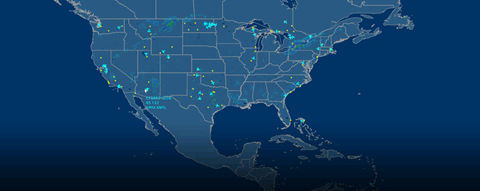
All policy is a balancing act between competing priorities. But when an FAA edict canceling pilots’ ability to shield their IFR flights from online public scrutiny was announced in the name of new security rules, the outcry echoed through the hallways of the federal courts and Congress.
The FAA announced that it would change the threshold for use of the Block Aircraft Registration Request (BARR) program, which lets pilots screen their N numbers from public disclosure on flight-tracking websites, unless an applicant could prove “a valid security concern.” The dismantling of BARR took effect Aug. 2. Citing the program’s past success, the privacy rights of citizens, and the needs of businesses to protect their competitiveness through freedom of movement, AOPA joined the National Business Aviation Association (NBAA) and other groups in mounting a court challenge. In addition, many members of Congress and senators voiced their opposition to the change in letters to the Department of Transportation, and two bills to restore the program began making their way through each house of Congress. A court hearing was scheduled for early December but in the end, Congress had effectively restored the program when they overwhelmingly approved language in an appropriations bill to restore BARR.
On Dec. 1, just before the scheduled federal appeals court hearing, the Department of Justice announced that the FAA had dropped the BARR restrictions.
Next: Knowledge testing being reviewed >>
1 2 3 4 5


